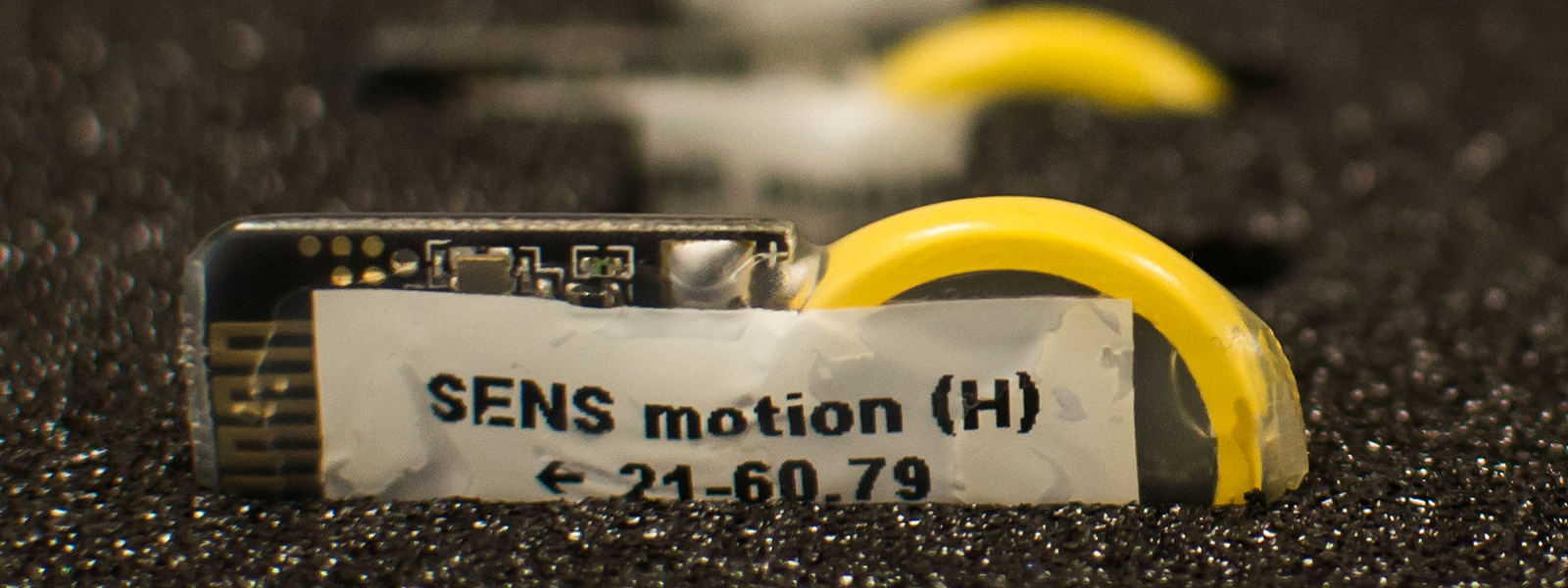Innovation in Autism's goal is to work towards an improved understanding of autism aetiology and development through the use of novel, engineered wearable and smart device technology for its fun, early assessment. In doing so, we aim to make significant scientific advancements and provide new tools for research and practice.

Laboratory for Innovation in AutismProjects & Collaborations
Our lab works closely with Professor Christopher Gillberg and his team at the Gillberg Neuropsychiatry Centre at the University of Gothenburg. The clinic is Europe’s most prolific research centre in childhood neurodevelopmental disorders. His team have worked closely with us to complete our combined Sweden-UK trial of the iPad early assessment for children with autism, and together we are working to develop a new work in novel forms of psychological and motor assessment for young children, and the development of a new birth cohort study to include wearable assessment of movement in early life as a biomarker of neurodevelopmental distress.
With Prof. Filippo Muratori and his clinical and neuroimaging colleagues Dr Sara Calderoni and Dr. Alessandra Retico at IRCCS Stella Maris Foundation and the Istituto Nazionale di Fisica Nucleare, respectively, we share significant interests and expertise to help elucidate the brain growth differences in young children with autism. We recently provided evidence of significant brainstem growth differences with implications for learning in preschool children, and are currently working on new data from the University of Southern California in analysis of brainstem differences related to Autism Spectrum Disorder and Developmental Coordination Disorder.
At the University of Southern California, we work closely with Professor Lisa Aziz-Zadeh and her team at the A-Z Lab, set within Prof. Antonio and Hanna Damasio’s Brain and Creativity Institute. We work to investigate motor differences in children with autism and those with developmental coordination disorder using novel iPad methodologies, together with fMRI and standardised psychometrics.
The laboratory has a long-standing collaboration with Nanyang Technological University in the development of new technology for fun, gamified assessments for young children with Associate Prof. Domenico Campolo, Director of the Robotics Research Institute. We are currently collaborating on the H-Man neurorehabilitation robot. We have concluded student exchange visits (UK-Singapore) with Capita-funded doctoral students Adam Mitchell, on pressure sensors for iPad gameplay analysis, and Yu Wei Chua, on bespoke engineering for analysis of sensory feedback during motor control.
Prof. Nicole Rinehart is one of the leading pioneers of the movement perspective on autism, publishing for the first time computational analysis of gait differences in individuals with autism. With Prof. Rinehard, we are working on full 3D whole body gait analysis of children with autism and other developmental disorders to understand with greater precision movement differences. Further, our contribution to practice in Education and in the community practice benefits from the All Play model of sport intervention that recognises the role of movement in health and learning. We believe this programme may serve as an important educational or social intervention, offering support and affording new opportunities for fitness and emotional well-being in Scotland.
Colwyn Trevarthen, Psychology. Together with long-standing collaborator and close colleague Prof. (Emeritus) Colwyn Trevarthen, our lab advance the motor perspective in autism spectrum disorder comprehensively put forward in our theoretical position paper, Autism as a Disorder of Intentional Movement and Affective Engagement. Colwyn’s expertise and scholarly perspective brings to autism the entire school of thought around intersubjectivity and focus on children’s experience, feelings, and agency. The implications of this sensitive position in child psychology for the education and care of children is expanded on in our collected volume, The Child’s Curriculum.
Pauline Phemister, Philosophy. With Prof. Pauline Phemister and Prof. Wendy Wheeler, we are funded by the Royal Society of Edinburgh to bring together biologists, psychologists, and philosophers to develop a better understanding of individual organisms (from bacteria to humans) as essentially relational, interconnected, communicative, feeling, sensing, experiencing and agentic beings. We look to understand how organisms represent and interpret their environments and how they might construct models of possible future environments to use when ‘choosing’ or ‘deciding’ to pursue one course of action or move in one direction rather than another. Our overall aim is to prepare the ground for the development of a new integrated philosophical and scientific paradigm that can account for the presence of feeling and emotion in all living beings and for their intentional agency and influence.
After a productive relationship with Prof Tetsuro Matsuzawa (now at Caltech), we are working with Assist. Prof. Yuko Hattori to understand motor control and motor sequencing in chimpanzee. The Centre for the Evolutionary Origin of Human Behavior is a world-leading centre for comparative psychology and primate intelligence. In particular, it specialises in a touch-screen methodology suitable for chimpanzees. In this collaboration, we seek to advance a novel computational analysis of chimpanzee movement to determine its motor kinematics, with an eye to understanding differences in the degree of variability, or adaptive flexibility, in those movements. This may shed important light on the degree of control in children with autism, and resistance to differences, or preservation of sameness.
We worked with Prof. Susan Rivera and PhD graduate Emily Fourie on the assessment of differences in perception and action of the two-thirds power law. Emily’s PhD employed a novel smart game assessment with data analytics generated at Strathclyde to support experimental studies with children with autism carried out at UC Davis. The project dovetailed with work at Gothenburg in smart device neuropsychiatric evaluation.
We enjoyed a productive partnership with the Theirworld Edinburgh Birth Cohort study to better understand the aetiology and pathogenesis of neurodevelopmental disability in children born prematurely. Our work with Profs. James Boardman and Sue Fletcher-Watson assessed 9-month-old babies using wearable motion analysis to determine if the motor modality adds predictive value and insight into trajectories of neurodevelopment in very young children at-risk for developmental concerns. In particular, we examined emotional self-regulation and goal-directed movement.